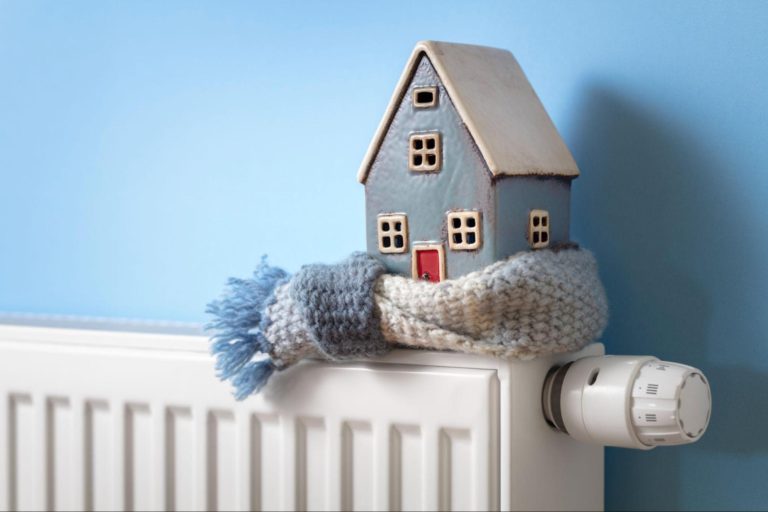What to Do If You Run Out of Home Heating Oil
Heating oil is in great demand during winter, and running out of home heating oil during this time can be a stressful experience, as staying warm is a top priority. Whether it’s due to unexpected weather, delayed deliveries, or simply forgetting to check your tank, being out of home heating oil can leave you looking for solutions in every way possible.
But don’t worry, there are steps you can take to manage the situation and get your heating system back up and running. From understanding the immediate actions you should take to exploring temporary heating options, this blog will walk you through everything you need to know. Also, get your hands on tips on how to prevent running out of home heating oil in the future, ensuring your home stays warm and comfortable year-round.
Running out of home heating oil doesn’t have to cause panic. With the right approach and a bit of preparation, you can quickly resolve the issue and avoid the same problem next time.
Signs That You’re Running Low on Heating Oil

Running out of home heating oil can cause a lot of inconvenience, especially during colder months. Fortunately, your heating system often gives you warning signs that your supply is running low. Here’s what to look out for:
- Inconsistent Heating
One of the most noticeable signs is a drop in heating performance. You may find that your radiators take longer to warm up or don’t get as hot as usual. Similarly, the water from your taps might not reach the desired temperature or fluctuate between hot and lukewarm. These inconsistencies often occur when there’s not enough oil in the system to maintain steady heating, signalling that your supply is running low.
- Unusual Noises from the Boiler
As your oil levels drop, your boiler might start making strange sounds. Gurgling, sputtering, or banging noises can indicate that air has entered the system, which happens when the oil is nearly depleted. These noises shouldn’t be ignored, as they not only signal low oil levels but can also affect your boiler’s performance if left unchecked.
- Visible Tank Levels
If your heating oil tank is equipped with a gauge, regularly checking it can give you a clear idea of the oil levels. A low reading on the gauge means it’s time to schedule a refill. Some modern tanks come with smart sensors or apps that alert you when levels are critically low, making it easier to stay on top of your supply.
- Burner Shuts Off Frequently
When your burner starts shutting off more often than usual, it’s often a sign of low oil. This occurs because the system struggles to draw enough fuel to keep running. In severe cases, the burner may fail to ignite altogether, leaving you without heating.
Recognising these warning signs early can help you avoid the discomfort and inconvenience of running out of heating oil unexpectedly.
What to Do When You Run Out of Home Heating Oil

- Turn Off Your Heating System
The first thing you should do is turn off your boiler or furnace. Running your heating system without oil can cause air to get into the fuel lines, which may result in system malfunctions or even damage to your boiler. Additionally, attempting to run the system without fuel can cause the burner to overwork, potentially leading to costly repairs.
- Check Your Tank
Before arranging for a refill, confirm that your tank is actually empty. Sometimes, issues like a clogged fuel filter or airlocks in the system can cause similar symptoms. If your tank still contains some oil, but your heating isn’t working, the problem may lie elsewhere.
- Contact Your Supplier
Once you’ve confirmed that your tank is empty, get in touch with your heating oil supplier. Many suppliers offer emergency delivery services, ensuring you can refill your tank quickly. If you’re in a pinch, ask about minimum delivery options to get just enough oil to restart your system without waiting for a full tank.
- Use a Temporary Solution
While waiting for your oil delivery, consider using temporary heating methods to keep your home warm. Electric space heaters are a convenient option and can be used in the most occupied rooms to maintain comfort. If you have a fireplace, it’s another excellent way to provide heat, but remember to follow safety guidelines to prevent fire hazards. Layering up with warm clothing and blankets can also help keep the cold at bay in the meantime.
- Prime and Restart Your Boiler
After your oil is delivered, your heating system may need to be primed to remove any air from the fuel lines before it can operate correctly. This process ensures that oil flows smoothly into the burner. Follow the instructions provided in your boiler’s manual, or contact a professional if you’re unsure about how to do this. Once primed, you can safely restart your system and enjoy a warm home again.
Conclusion
Running out of home heating oil can be challenging, especially during colder months. However, with the right steps, you can quickly resolve the issue and get your heating system back on track. You can start by simply turning off your boiler to prevent air from entering the system, which could cause further issues. Next, check your tank to confirm it’s empty and contact your supplier for an emergency delivery. Many suppliers offer quick turnaround services to ensure you’re not left in the cold for long.
While waiting for your delivery, consider temporary heating options such as electric heaters or a wood-burning fireplace to keep your home warm. Once your oil is delivered, you may need to prime and restart your boiler to ensure it functions correctly. If you’re unsure how to do this, consult your boiler’s manual or contact a professional.
To prevent running out of home heating oil in the future, regularly check your oil levels or set up automatic top-ups with your supplier. You could also explore alternative heating options, such as heat pumps or biomass boilers, for a more sustainable solution.
By staying prepared and proactive, you can minimise disruptions and ensure your home stays warm and comfortable.








